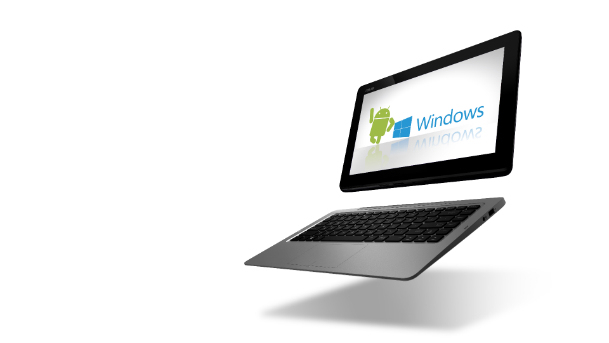
The Asus Transformer Book Duet TD300 Android/Windows tablet/laptop may never move past concept phase, Digitimes says, citing Chinese publication The Economic Daily News, as Google is apparently forcing Asus to dump its freshly announced dual-OS device.
Apparently Asus wanted to start selling the device in the first quarter of the year in various markets including Asia and Europe, with the U.S. expected to launch the convertible tablet in the second quarter of 2014. However, it’s not clear what will happen with the Transformer Book Duet TD300 now, and Asus declined to comment on the matter.
Announced at CES 2014, the Transformer Book Duet had some interesting specs, including a 13.3-inch touchscreen IPS Full HD display, fourth-gen Intel Core processor, 4GB of RAM, 128GB of SSD in tablet mode, and up to 1TB HDD when docked in the Keyboard Dock, Windows 8.1 and Android 4.2.2. One of the features the company demoed during the show was the ability of the tablet to quickly move between Android and Windows, with Asus saying that it could change operating systems in around four seconds.
This isn’t the first interesting dual Android/Windows project that’s shot down between announcement and launch, assuming the report is accurate. In the past year, a similar Samsung tablet/laptop was canned by the South Korean company, which did not offer any explanation as to why it cancelled the project.
The Asus Transformer Book Duet’s price was set to start at $599, depending on processor choice and storage.
----------
If you liked this article, please subscribe to our YouTube Channel for tech news, reviews and video tutorials. You can also find us on Twitter, Instagram and Facebook.




